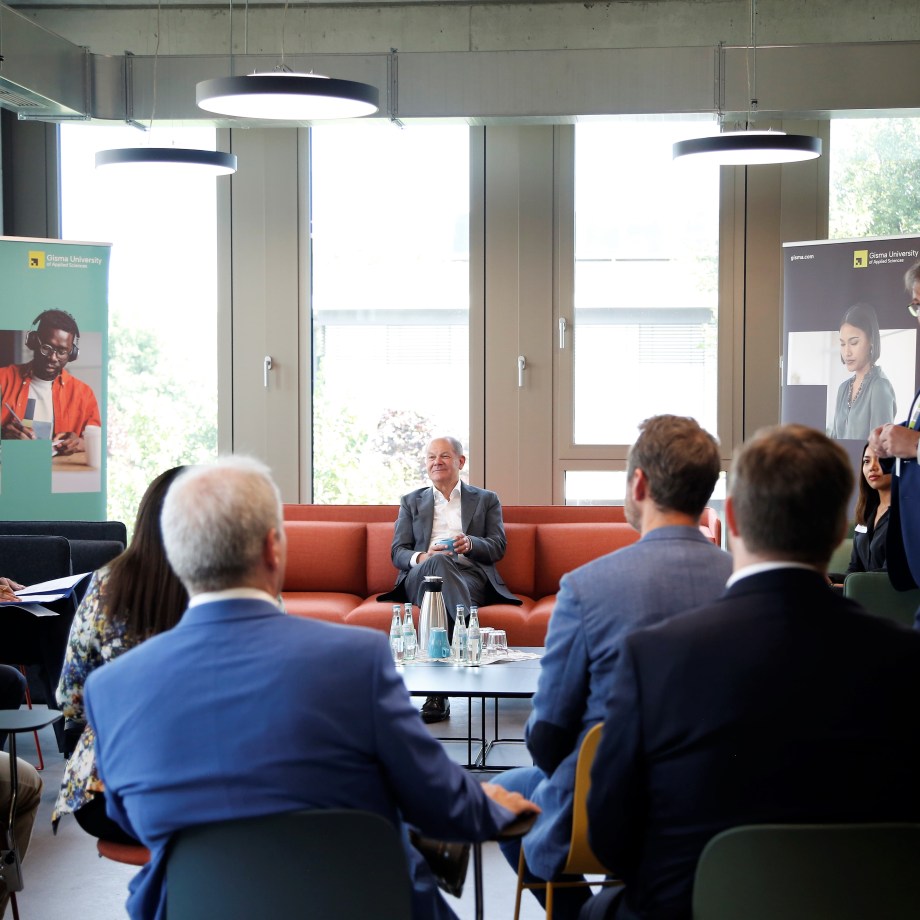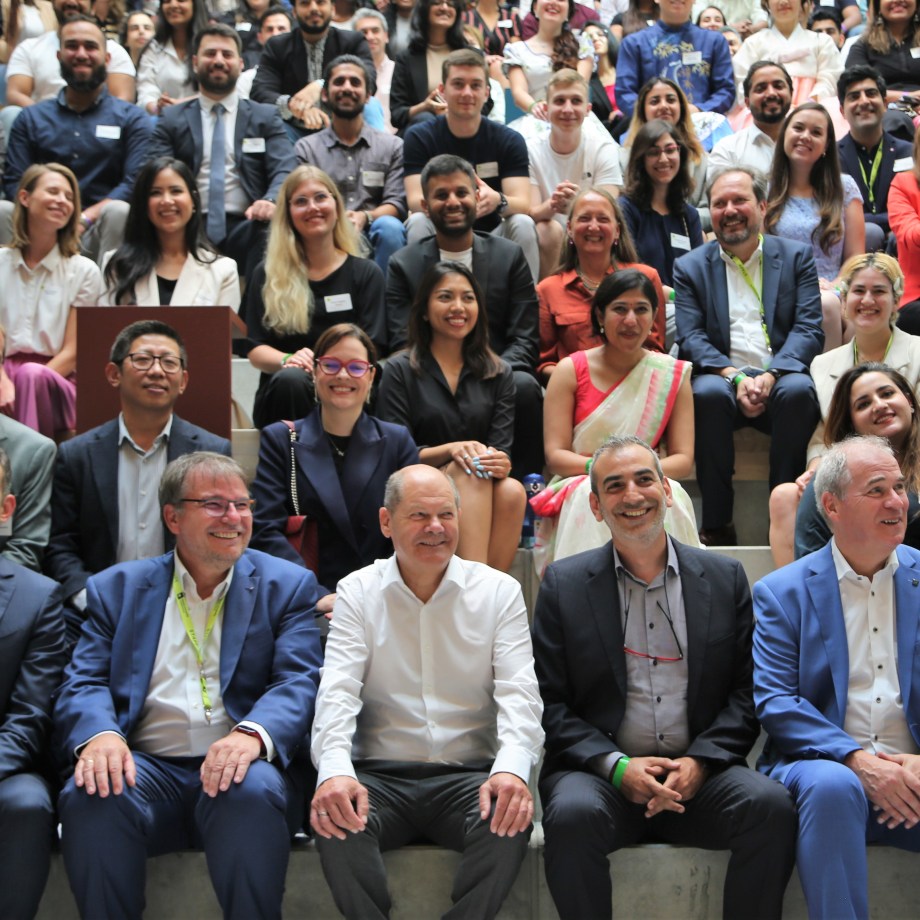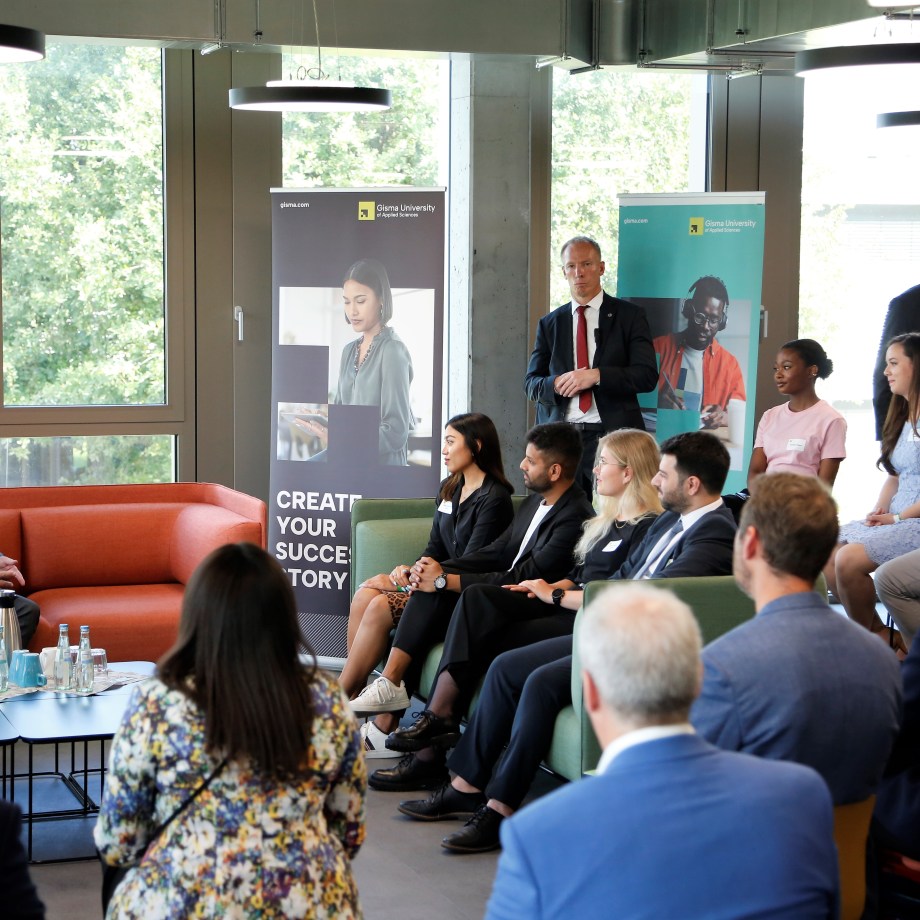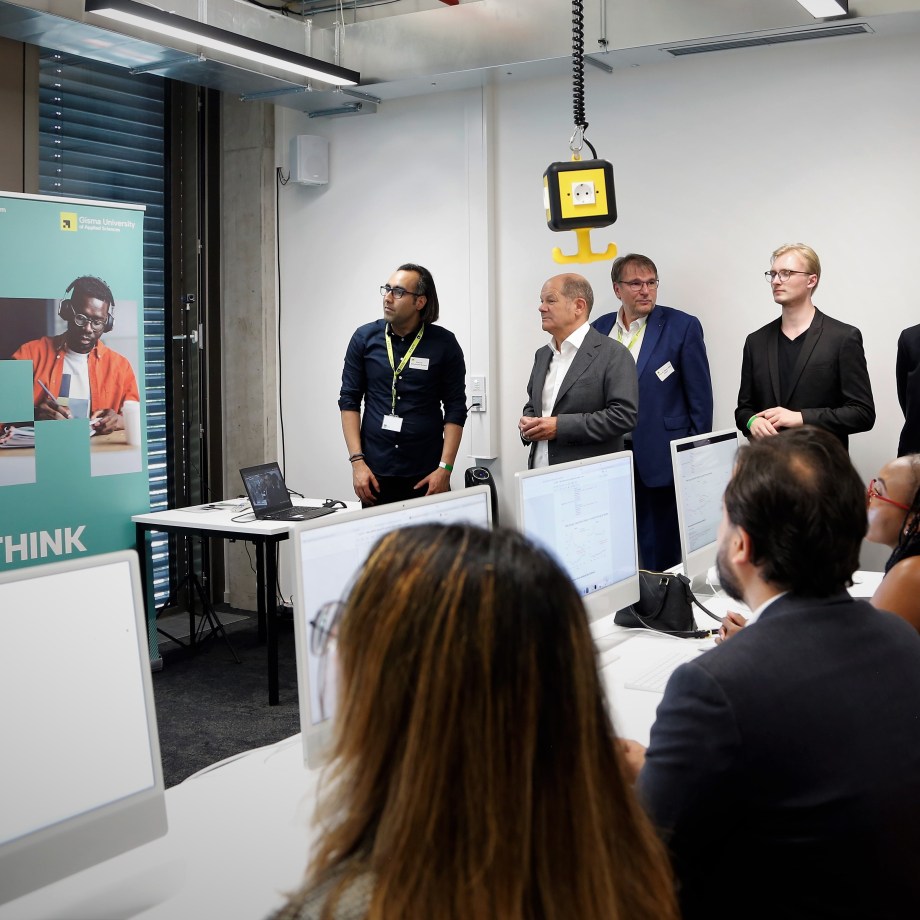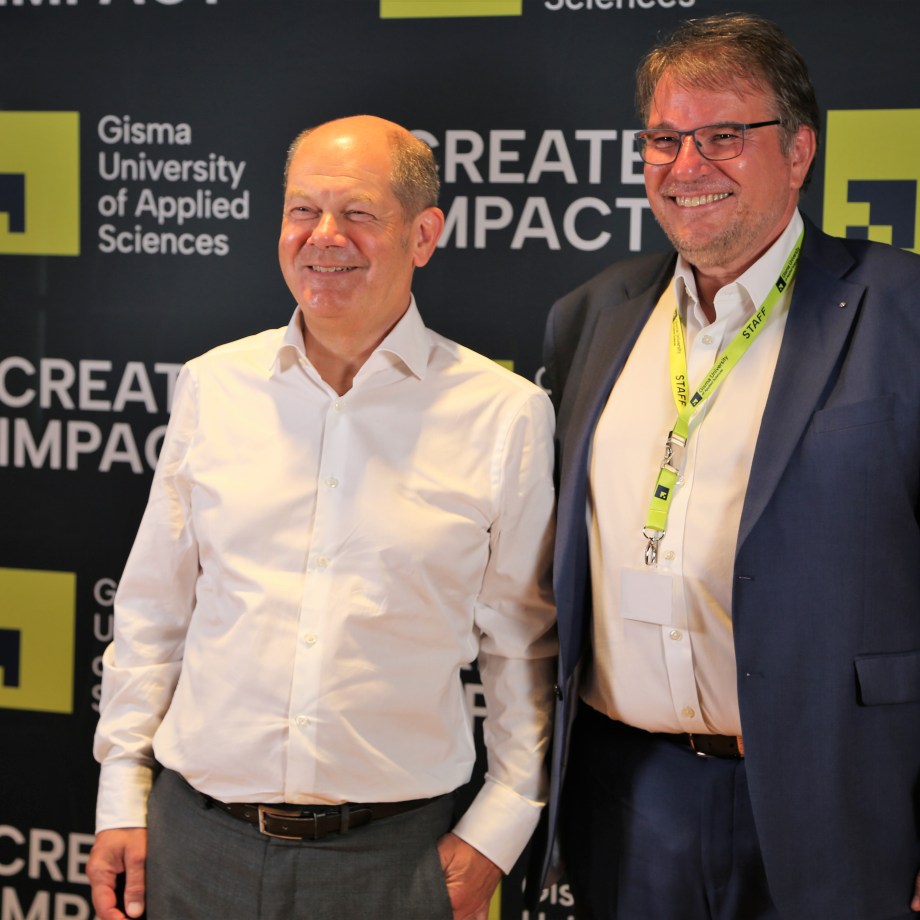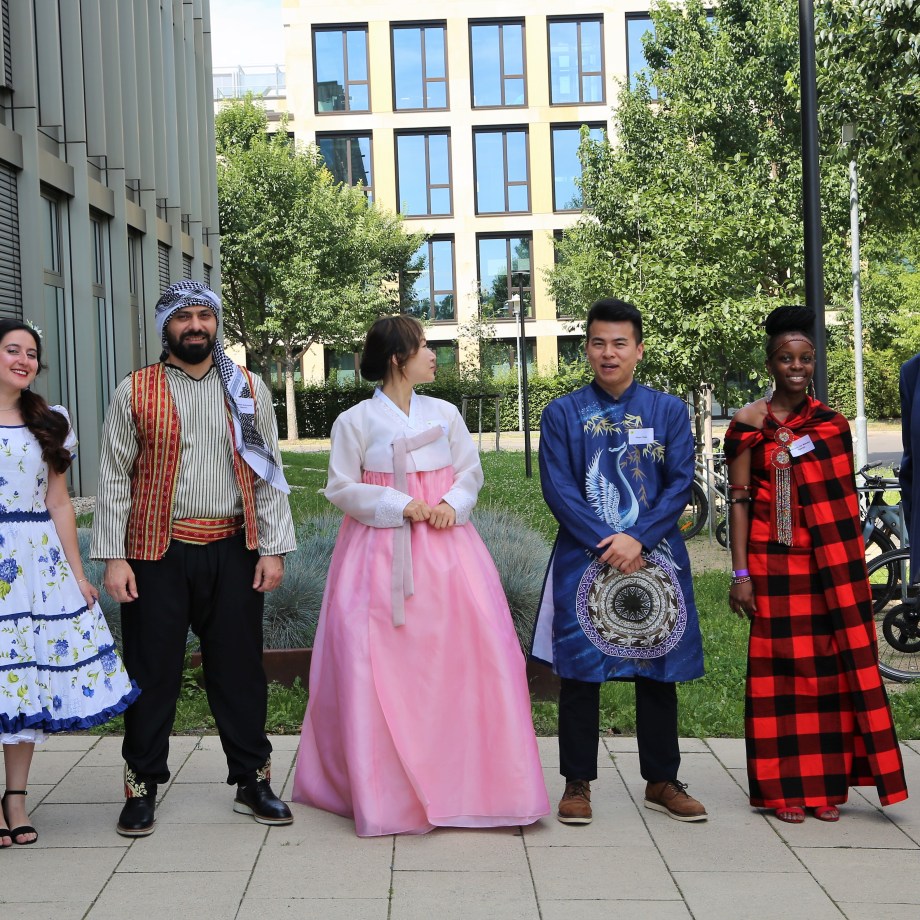
German Chancellor Olaf Scholz at Gisma University of Applied Sciences in Potsdam
He discussed the challenges faced by international professionals in Germany with students and university partners, the main obstacle being the language barrier – especially in German HR departments.
German Chancellor Olaf Scholz held discussions at Gisma University of Applied Sciences in Potsdam with students, professors, and academic partners on issues concerning skill shortages and fostering young talent.
The primary challenges for international talents in Germany were highlighted: German language skills are often expected both in many companies and in daily life, even when they aren’t strictly necessary for the profession. This deters many international professionals from building a life in Germany.
Prof Dr Stefan Stein, President of Gisma University of Applied Sciences, reflected on the Chancellor’s visit: “We are delighted that the Chancellor took the time to visit our institution and discuss solutions to the skill shortage with our students and us. As an international university, we offer international solutions: German language skills should no longer be the top employment criterion.”
“In our modern globalised world, it’s outdated to reject a highly qualified professional simply because they speak only English. The German start-up scene sets the example: Teams are international, office and business languages are English, and German is seen as a ‘plus’. On the other hand, traditional German companies, from SMEs to established conglomerates, are yet to acknowledge that labour migration is the only sustainable way to close the skill gap. Especially when German skills are not necessary to deliver exceptional work in areas like AI, software engineering, and data science.”
“Moreover, surveys suggest many foreign professionals don’t feel comfortable in Germany: they find it challenging to settle and make friends. We must become more international as a society to tackle the skill shortage collectively. We simply can’t afford to lose the talented professionals we train in Germany to other countries.”
It was inspiring to see how many students from around the world come to Germany and wish to work here afterwards. We need these young and well-qualified men and women for the successful economic development of our country.
Chancellor Olaf Scholz
